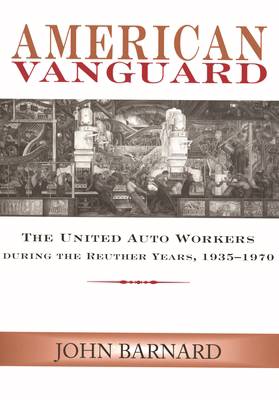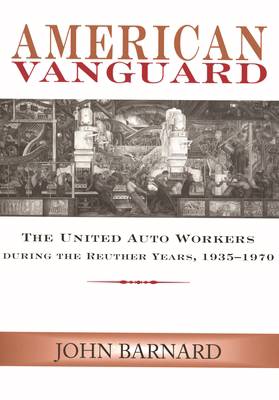
- Afhalen na 1 uur in een winkel met voorraad
- Gratis thuislevering in België vanaf € 30
- Ruim aanbod met 7 miljoen producten
- Afhalen na 1 uur in een winkel met voorraad
- Gratis thuislevering in België vanaf € 30
- Ruim aanbod met 7 miljoen producten
Zoeken
American Vanguard
The United Auto Workers During the Reuther Years, 1935-1970
John Barnard
Paperback
€ 50,45
+ 100 punten
Omschrijving
The struggles and victories of the UAW form an important episode in the story of American democracy and economics. This work presents the history of the union for both general and academic audiences. It not only records the controversial issues tackled by the UAW, but also offers details about the workers and their environments.
Specificaties
Betrokkenen
- Auteur(s):
- Uitgeverij:
Inhoud
- Aantal bladzijden:
- 608
Eigenschappen
- Productcode (EAN):
- 9780814332979
- Verschijningsdatum:
- 30/09/2005
- Uitvoering:
- Paperback
- Afmetingen:
- 264 mm x 179 mm
- Gewicht:
- 1290 g

Alleen bij Standaard Boekhandel
+ 100 punten op je klantenkaart van Standaard Boekhandel
Beoordelingen
We publiceren alleen reviews die voldoen aan de voorwaarden voor reviews. Bekijk onze voorwaarden voor reviews.











